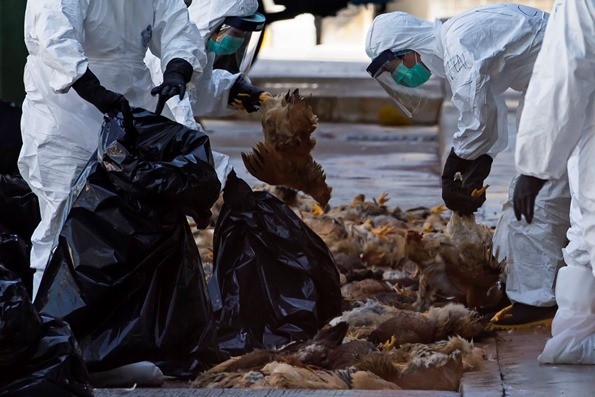The Council of Agriculture (COA) confirmed on Monday a total of 14 separate locations in Taiwan that they have chickens and waterfowl infected with the new strains of H5N2 and H5N8 bird flu, the China Post reported.
According to Hsu Jung-pin, COA Director of Animal, the ministry already dispatched workers to disinfect poultry farms, including those heavily hit ones in Kaohsiung City and Pingtung County. It is noted that Kaohsiung City has a total of 490 poultry farms; 97 of these farms raise ducks and geese and have a stock of approximately 550 birds each.
Meanwhile, the Centers for Disease Control revealed that there is no evidence of humans catching bird flu. Among the 234 farm owners in Yunlin, Chiayi and Pingtung counties, three have symptoms of coughing, runny noses and sore throats which are not in any way related to bird flu, the China Post said.
To prevent further transmission of the bird flu to waterfowl, the Kaohsiung City government assembled an emergency response team on Monday, Jan. 12. Wu Hung-mou, Kaohsiung City deputy mayor, urged local authorities to closely monitor all access points for livestock.
Lin Ming-chen, Nantou County chairman, confirmed that there is no sign of bird flu in their area. However, he is seeking funding for special disinfection stations. He also urged agricultural inspectors to impose fines to farmers using manure from chicken excrement.
According to Chen Jui-pin, head of Keelung's Animal Disease Control Center, veterinarians have been sent to four chicken farms to enforce a higher level of monitoring for bird flu and other related diseases. Chickens should not be transported from other counties into the local area to minimize the risk of a nationwide epidemic, Chen suggested.
H5N2 bird flu's potency and level of transmission is measured by the level of pathogens found within poultry. Chen added that there is no evidence suggesting that bird flu can be directly transmitted to humans.
The center advises that those who are concerned about being exposed to bird flu and other related diseases should frequently wash their hands and maintain personal hygiene.



























